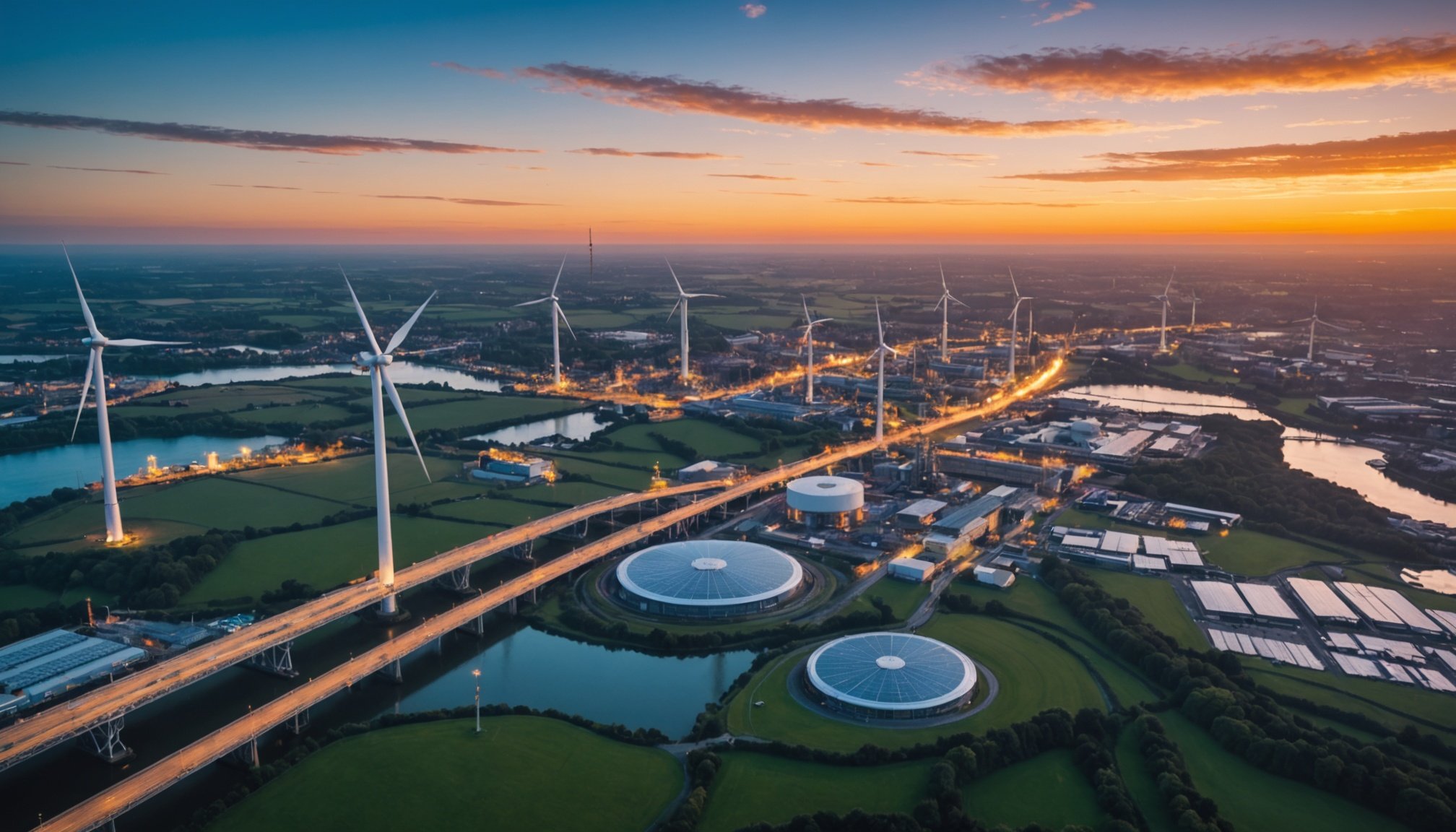Overview of AI and Predictive Analytics in the Energy Sector
The integration of AI in energy marks a transformative shift in how resources are managed and optimised within the sector. At its core, AI and predictive analytics are utilised to analyse vast amounts of data, identifying patterns and making accurate forecasts about energy consumption and distribution. This kind of technology doesn’t just help predict future energy needs; it also optimises energy distribution and reduces waste.
In the UK, the application of AI in the energy sector is gaining traction, particularly through projects focused on enhancing operational efficiency and sustainability. A prime example is the implementation of AI in smart grids. These grids leverage data to balance supply and demand, reducing energy consumption during peak hours and integrating renewable energy sources seamlessly.
In parallel : Harnessing ai for retail triumph: elevating customer segmentation strategies in the uk market
The potential impact of AI and predictive analytics on energy transformation is significant. By improving energy efficiency, these technologies contribute to sustainability efforts, reducing carbon emissions and supporting a transition to greener energy solutions. As more data becomes available, the role of AI in optimising energy usage and promoting sustainable practices is expected to grow, driving an evolution towards more sustainable and efficient energy systems. In conclusion, the future of energy lies in the powerful combination of AI and predictive analytics.
Case Studies of AI in the UK Energy Landscape
The UK energy sector is seeing a progressive shift with successful AI implementations enhancing energy efficiency and sustainability. Case studies demonstrate how AI is revolutionising this landscape through innovative approaches.
This might interest you : Essential Tactics for Building a Robust Cybersecurity Blueprint in the UK’s Financial Industry
Utility Company Innovations
UK utility companies are at the forefront of leveraging AI to improve energy efficiency. For instance, some have integrated AI-driven predictive analytics to enhance grid reliability and reduce outages. By forecasting demand and identifying potential faults before they occur, these companies minimize disruption and optimize service delivery. This not only enhances operational efficiency but also leads to significant cost savings and improved customer satisfaction.
Smart Grid Enhancements
Smart grid enhancements represent another vital area where AI plays a critical role. AI systems enable these grids to autonomously manage energy flow, incorporating renewable sources like solar and wind. This adaptability ensures stable supply and demand balance across various conditions. Real-world examples include AI-driven platforms that dynamically adjust grid loads, showcasing reduced energy waste and promoting sustainability.
Renewable Energy Optimization
AI is pivotal in renewable energy optimization, aiding energy producers in maximizing output while minimizing environmental impact. Algorithms analyse weather patterns to optimise the use of solar and wind resources. These technologies not only bolster renewable energy integration but also help in achieving carbon reduction goals, fostering a more sustainable energy infrastructure.
Benefits of Harnessing AI in Energy Transformation
The benefits of AI in the energy sector are transformative, paving the way for enhanced management and operational efficiency. AI’s ability to process vast data sets allows for more precise energy management, drastically reducing wasted resources. With predictive analytics, energy providers can anticipate demand fluctuations, optimising usage and reducing unnecessary output. This leads not only to improved operational workflows but also establishes a groundwork for smarter, more responsive energy systems.
From a financial perspective, one of the most significant advantages is the potential for energy cost reduction. AI solutions help consumers and businesses identify areas where energy can be conserved, resulting in tangible cost savings. Automated systems enable seamless energy management, lowering consumption rates without compromising on performance or comfort.
Furthermore, AI adoption plays a crucial role in enhancing sustainability within the energy sector. By facilitating the integration of renewable sources and improving distribution efficiency, AI contributes to a substantial reduction in carbon emissions. These efforts not only align with global environmental goals but also support a cleaner, more sustainable future for energy systems. As AI continues to evolve, its capacity to enhance sustainability and promote energy-efficient practices will undoubtedly expand.
Challenges in Implementing AI in the Energy Sector
As the integration of AI in energy continues to grow, several challenges persist. Among these are significant technical and infrastructural obstacles. The existing energy infrastructure often requires substantial updates to be compatible with advanced AI technologies, demanding considerable investment. Additionally, AI systems need high-quality, continuous data inputs, which can be hindered by current limitations in data infrastructure and accuracy.
Data privacy and security concerns present another considerable challenge. The vast amounts of data processed by AI systems include sensitive information, raising potential privacy issues. Ensuring the security of this data against breaches is crucial to maintaining trust and compliance with regulations.
There is also a pressing skills gap and workforce adaptation concern. The deployment of AI in the energy sector necessitates expertise that is not yet widespread among current employees. Bridging this gap requires significant upskilling and training initiatives. This transition phase can be daunting for energy companies trying to leverage the full potential of AI, as it may involve restructuring teams and redefining roles.
Addressing these challenges requires coordinated efforts from both industry stakeholders and policymakers to ensure a seamless and efficient energy transformation.
Future Trends and Predictions for AI in UK Energy
The future of AI in energy is ripe with exciting possibilities, set to transform how the UK manages its resources. Emerging technologies are paving the way for smarter energy systems, with the potential to drastically enhance efficiency and sustainability. One of the most promising energy transition trends is the use of AI in advancing battery storage solutions, which are critical for balancing supply and demand, especially with the rise of renewable energy sources.
Technological advancements such as machine learning algorithms are expected to play a significant role in developing smarter grids. These systems can predict energy usage patterns with incredible accuracy, thus optimising energy distribution and minimising waste. This level of precision makes AI an indispensable tool for future energy management strategies.
Government policies are crucial in facilitating AI integration into the energy sector. Regulation and incentives for renewable energy use and AI implementation can accelerate the transition. By setting ambitious sustainability targets, the government encourages innovation and investment in technologies that support a greener economy.
Predictions for AI adoption in the energy market suggest a surge in its integration, driven by the necessity for efficient, low-carbon solutions. As the sector evolves, stakeholders must embrace these changes to capitalise on AI’s full potential.

